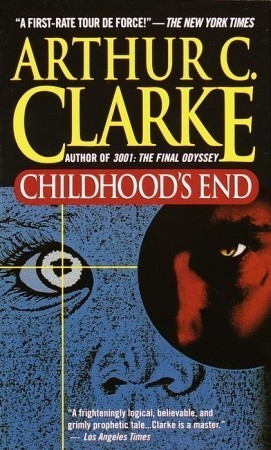TL;DR
In 'Childhood's End', Arthur C. Clarke explores humanity's evolution under the guidance of benevolent alien overlords, who bring peace but at the cost of creativity and individuality, raising questions about purpose and existence.
What is Childhood’s End about
'Childhood’s End' is a science fiction novel that examines the implications of alien intervention in human society. The Overlords, enigmatic beings of superior intellect and technology, peacefully take control of Earth, mandating the end of war and poverty, thus ushering in a golden age for humanity. However, as the Overlords impose their vision for a unified world, they inadvertently stifle human ambition and creativity, leading to a pervasive sense of malaise among the populace. As the story unfolds, it becomes evident that the Overlords' ultimate agenda relates to the transformation of human children into a new, transcendent form, culminating in a confrontation between humanity's potential and the cost of peace.
Childhood’s End 7 Key Takeaways
The Arrival of the Overlords
The Overlords appear in every city worldwide, using their advanced technology to assert control over humanity, demanding peace and unification.
Humanity's Golden Age
As wars cease and poverty is eliminated, humanity enters a golden age, but with this newfound peace comes a loss of ambition and creativity.
The Role of the Overlords
The Overlords, while benevolent, harbor their own hidden agenda, as they guide humanity towards a transformative evolution.
The Transformation of Children
As the story progresses, human children begin to undergo a transformation that connects them to the Overmind, leading to unforeseen consequences.
The Fate of Earth
In the climax, the children consume Earth's resources for their transformation, ultimately leading to the planet's destruction.
The Last Human
Milo, one of the last remaining true humans, chooses to stay behind as the Overlords depart, marking the end of humanity as it was known.
The End of an Era
The novel concludes with the realization that while peace has been achieved, it comes at the ultimate cost of human identity and existence.
Top Childhood’s End Quotes
- "The greatest danger for most of us is not that our aim is too high and we miss it, but that it is too low and we reach it."
- "The price of peace is the loss of individuality; the challenge of existence is to find meaning within the collective."
- "Humanity's greatest strength lies not in its ability to conquer, but in its capacity to evolve."
Who should read Childhood’s End?
'Childhood’s End' is ideal for science fiction enthusiasts and those curious about existential questions regarding humanity and its future. Readers seeking thought-provoking narratives that challenge societal norms and explore the limits of human potential will find this book particularly inspiring.
Childhood’s End Best Reviews
- "A haunting insight into the future of humanity, 'Childhood's End' challenges readers to contemplate the price of peace and the essence of existence." - Sci-Fi Digest
- "Clarke's narrative is both grand and intimate, weaving complex themes of evolution, identity, and the human condition in a thought-provoking tale." - The Review Journal
- "An essential read for any science fiction aficionado, 'Childhood's End' is a timeless exploration of humanity's potential and limitations." - Literary Critique
People also liked these summaries
Childhood’s End FAQs
What is the central theme of 'Childhood's End'?
The central theme revolves around the purpose of humanity and the implications of alien intervention, exploring what happens when peace is achieved at the cost of individuality and creativity.
How do the Overlords impact human society in the novel?
The Overlords bring about a golden age by eliminating war and poverty; however, their control leads to a stagnation of human ambition and creativity.
What ultimately happens to Earth and its inhabitants?
As the children evolve into a new transcendent form, they consume Earth's resources, resulting in the planet's destruction, marking the end of humanity as it was known.
